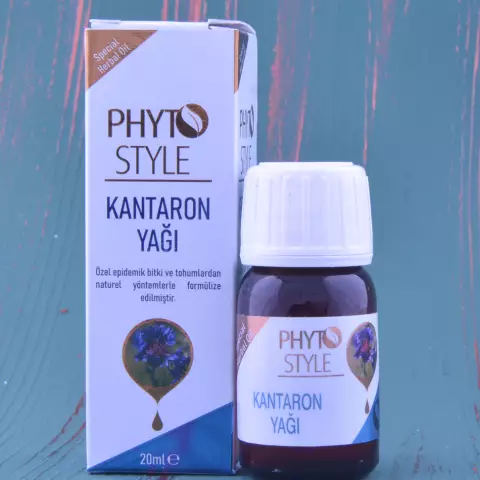- Author Rachel Wainwright wainwright@abchealthonline.com.
- Public 2023-12-15 07:39.
- Last modified 2025-11-02 20:14.
Puppeteer from alcoholism

Puppeteer is the popular name for hellebore Lobel, a plant species of the Melantiev family that has poisonous, medicinal and insecticidal properties. In traditional and folk medicine, the names of hellebore root, hellebore, helmeris, zimeritsa are also found.
The puppeteer is a herbaceous perennial plant with a thick, round, straight stem and numerous alternate leaves. For medicinal purposes (for example, a puppeteer from alcoholism), rhizomes with roots are used, which are harvested in autumn, less often in spring, after the ground part of the plant dies off.
Lobel's hellebore contains 5 steroidal alkaloids, mainly concentrated in the root and root parts of the plant, as well as resins, amino acids, gum, glycosides, vitamins, fatty acids, and mineral salts.
Lobel's hellebore is limitedly used in official medicine. In scientific medicine, the puppeteer is used for neurological and rheumatic pain syndromes. Traditional medicine uses Lobel's hellebore as an effective antipyretic, anti-inflammatory agent for pneumonia, typhoid, rheumatism. However, the puppeteer received the greatest use from alcoholism.
The limited use of hellebore in traditional medicine, as well as puppeteer from alcoholism as a folk remedy, is due to the toxicity of the plant. Among the alkaloids found in its composition, the most poisonous is protoveratin - a substance that helps suppress the activity of the central nervous system, disrupt the functioning of the gastrointestinal tract, as well as the cardiovascular system. It is protoveratin that makes the puppeteer for alcoholism so effective. When poisoning with hellebore Lobel, the following symptoms occur:
- Tingling sensation in the throat;
- Drooling, sneezing, profuse discharge of nasal mucus;
- Headache, convulsions, dizziness, impaired consciousness, general agitation;
- Violation of cardiovascular activity;
- Hypotension;
- Shock.
In case of severe poisoning, a lethal outcome is possible. For detoxification in case of poisoning with hellebore Lobel, dopamine and atropine are used. However, these funds are not effective enough to stop the development of symptoms in case of an overdose.
Puppeteer: herb for alcoholism, mechanism of action
Puppeteer is a herb for alcoholism, widely used in folk medicine in the form of a weak tincture. The puppeteer of alcoholism has become widespread due to the fact that the treatment of alcoholism does not require the consent of the patient himself. The puppeteer from alcoholism has a general toxic effect on the body, provoking nausea, vomiting, which causes a conditioned reflex negative reaction of the body to alcohol. Hellebore intoxication is prolonged in time and lasts from several hours to several days. When drinking alcohol during this period, symptoms of severe poisoning and indigestion occur. Puppeteer from alcoholism has emetic properties. Puppeteer tincture, an herb for alcoholism, is added to the alcoholic's food and drink, causing the severe vomiting associated with alcohol intake. The puppeteer is not added directly to spirits. The toxicity of the puppeteer, a herb from alcoholism, is due to the concentration of alkaloids in the plant. The highest concentration of toxic substances is found in the roots and rhizome of the plant, while the stem and leaves contain significantly less toxic substances. In order to avoid an overdose by the puppeteer from alcoholism, it is recommended to use the leaf and stem of the plant for preparing decoctions. In order to avoid an overdose by the puppeteer from alcoholism, it is recommended to use the leaf and stem of the plant for preparing decoctions. In order to avoid an overdose by the puppeteer from alcoholism, it is recommended to use the leaf and stem of the plant to prepare decoctions.

Puppeteer from alcoholism: reviews, recommendations
The puppeteer for alcoholism is used in the form of a decoction, for the preparation of which a portion of dried, crushed roots is used, which is poured with boiling water and infused for several hours, then the broth is filtered and stored in the refrigerator. To prepare a puppeteer decoction for alcoholism, user reviews recommend boiling the decoction before infusing or infusing for longer, which makes it more concentrated.
The puppeteer's decoction from alcoholism, reviews of which can be found on the Internet, is added to the patient's food and drink daily with a gradual increase in the dose. The minimum effective dose of puppeteer for alcoholism is 2 drops. During treatment, the patient should not experience nausea, vomiting and other signs of intoxication without alcohol.
Also, for the treatment of alcohol addiction by a puppeteer for alcoholism, reviews recommend using a crushed leaf of a plant. A teaspoon of dry herb is poured into 200 ml of boiling water. Tincture of puppeteer leaves for alcoholism is less concentrated, therefore, it is used directly in the intoxication stage, 1 teaspoon each for the appearance of a gag reflex.
When treating with a puppeteer, one should remember about a possible overdose, which will lead to severe poisoning of the body. When the first symptoms of intoxication appear, the patient must immediately rinse the stomach and seek qualified medical help.
Puppeteer treatment for alcoholism: methods, recipes
The effectiveness of the treatment of alcoholism by the puppeteer depends entirely on the susceptibility of the organism and the stage of dependence on alcohol of the patient himself. The puppeteer for alcoholism is not a panacea. Treatment of alcoholism by a puppeteer becomes the most effective in combination with other methods: drug treatment, methods of psychological influence, social rehabilitation of the patient.
Alcoholism is a disease characterized by mental and physical dependence on alcohol, pathological addiction to alcoholic beverages. There are three stages of alcoholism, characterized by the degree of addiction and dependence on alcoholic beverages:
- The first stage is characterized by an insurmountable, hard-to-control desire to consume alcoholic beverages, a temporary loss of craving for alcohol, a lack of a critical attitude towards alcoholism, and an increase in the tolerance of severe intoxication. In the first stage, the puppeteer for alcoholism is most effective. At this stage, for the treatment of alcoholism by the puppeteer, the smallest dosages of decoction are needed;
- The second stage of alcoholism is characterized by a stable tolerance to any dose of alcohol, alcohol withdrawal syndrome, and continuous drinking. In the second stage of alcoholism, persistent psychological dependence on alcoholic beverages develops. At this stage, treatment of alcoholism by the puppeteer will require a longer exposure to the body;
- The third stage is characterized by a decrease in alcohol tolerance or its complete absence, short-term memory loss even with the use of small doses of alcohol, complete exhaustion of the body. Addiction to alcohol moves from the conscious to the unconscious. At this stage, the puppeteer from alcoholism requires a longer use.
Found a mistake in the text? Select it and press Ctrl + Enter.






